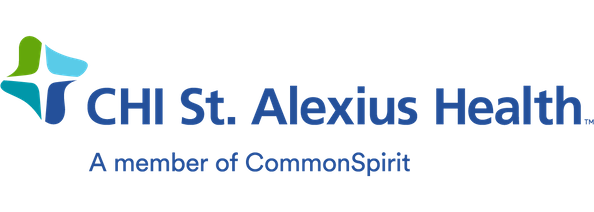Emergency and Level II Trauma Center
Should the worst happen, the region’s best emergency care stands ready at CHI St. Alexius Health Bismarck, a Level II Trauma Center.
From heart attacks and strokes to complex traumas – time is always of the essence. Choose the hospital that has everything you need for any emergency with 24/7 services, including:
- Cath Lab for Cardiac Services
- Radiology/Diagnostic Lab
- Intensive Care Unit
- Neonatal Intensive Care Unit
- Cardiology
- Neurology & Neurosurgery
- Pulmonology
- Pediatric Unit
Our team stands ready to care for you. We’ve been honored to serve the Bismarck-Mandan area for over 148 years!
Why Patients Choose Us for Emergency Care?
- We are a 24/7 Level II Trauma center able to care for ALL injured patients
- Staffed by LOCAL board-certified emergency physicians and staff
- Convenient parking for patients and guests, including a drive-thru ambulance bay for patients
North Dakota's First Level II Trauma Center
In 1993, CHI St. Alexius Health became the first Level II Trauma Center in the State of North Dakota. A Level II Trauma Center must include 24-hour immediate coverage by general surgeons, as well as coverage in the specialties of orthopedic surgery, neurosurgery, anesthesiology, emergency medicine, radiology, and critical care. Verified trauma centers must meet the essential criteria that ensure trauma care capability and institutional performance and be re-evaluated every three years. The Team at St. Alexius Emergency Department is proud to continue serving the community over the last 30 years as a Trauma Center.
Emergency Department or Urgent Care?
Know before you go! Many Emergency Department visits could also be handled at a Urgent Care. Use this guide to decide which type of care is best for you.
- Open 7 Days a Week, 8 a.m. – 8 p.m.
- Urgent Care provides easy access to quality health care for illnesses or injuries that are non-life-threatening but can’t wait until the next day.
Common Reasons to Visit the Emergency Department
Our general approach in the emergency department is as follows:
- Rule out life threats
- Treat symptoms
- Diagnose cause if possible
- Decide the next steps for treatment and referral if needed. Most patients are referred back to primary care to ensure improvement in symptoms and for follow-up testing if needed. Some patients will be referred to a specialist to be seen on an outpatient basis.

